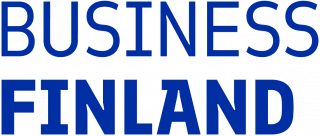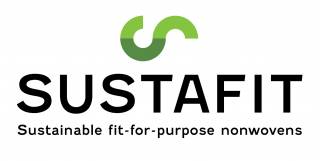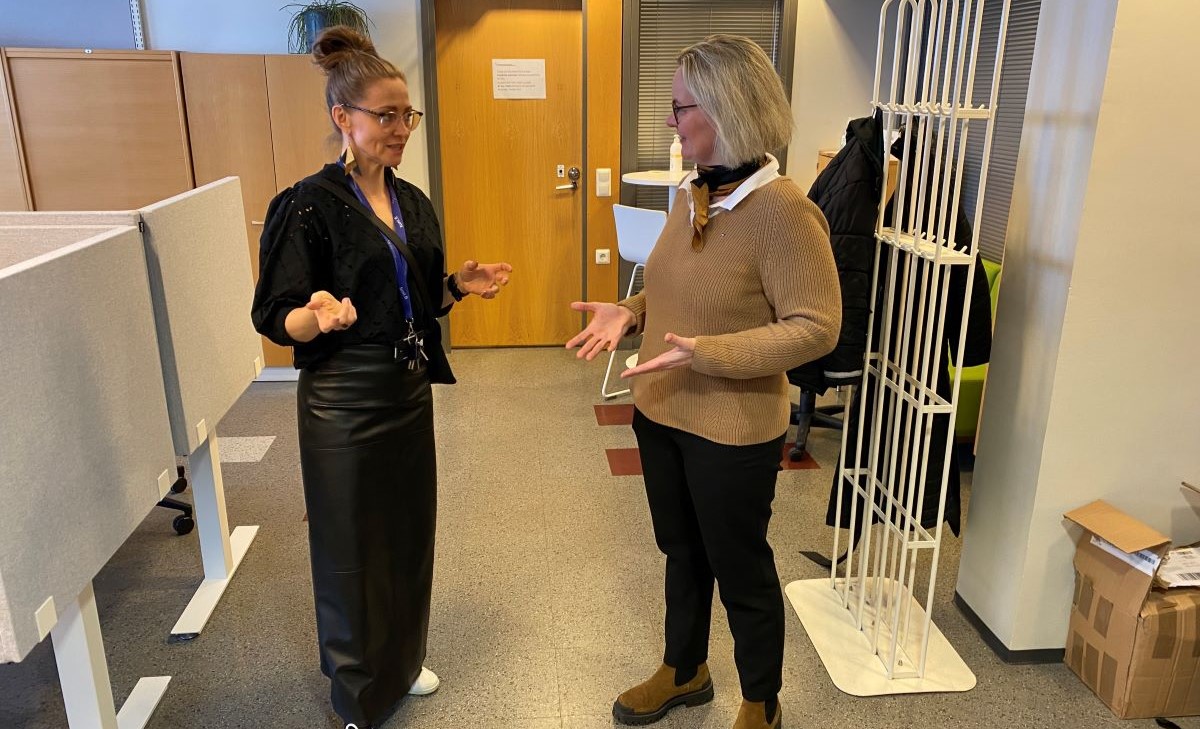Carlé describes herself as a curious person aiming to gain various perspectives from Finnish education, for example learning ways to include sustainability in her lectures.
Importance of international collaboration with diverse perspectives
Rikke Carlé works as a lecturer at University of Applied Sciences in Denmark and at Aalborg’s University Business School. As part of SUSTAFIT research international cooperation, she is currently staying in Finland for a tree-month research period during spring 2024.
Carlé´s stay in Finland underlines the importance of international collaboration, and, through diverse perspectives, aims to give valuable insights to her research. The visit is hosted by Senior Lecturer, Dr. Pia Hautamäki from Tampere University of Applied Sciences. Hautamäki is leading the SUSTAFIT project.
As an outcome, the international collaboration aims to deepen the project´s themes. In addition to meetings Carlé has visited the Leadership Network of Tampere Chamber of Commerce. She held a keynote speech on sustainable selling focusing on the data she has gathered from Denmark.
Understanding the background: “When new things come into a scene, it is difficult”
Previously, as a part of her research and while interviewing companies on the topics of sustainability and sustainable development, she has noticed a concern among companies about the difficulty of starting with the right steps. Companies understand the importance of acting on sustainability issues, but Carlé sees an uncertainty related to implementing changes. While majority of executives recognize the significance of sustainability, a substantial portion of organizations have yet to develop sustainability strategies.
“They (companies) have their cultures, they have their habits, they have been doing things for a long time in a specific way so when new things come into the scene, it is difficult”, Carlé says.
Embracing sustainability is not only socially and environmentally responsible, but also economically advantageous. Carlé recognizes that many companies haven’t yet realized the economic benefits of sustainability efforts. She says that a key factor for companies in taking the right steps towards sustainable development could be economical benefits; these could include cost reductions, increasing efficiency and other competitive advantages.
Unlocking the potential in change
The most meaningful lesson Carlé has learned is the challenge in change.
“Change is difficult”, she acknowledges. “However, the focus lies in unlocking the potential in change”, she continues.
Carlé encourages us to have sustainability related discussions. As a lecturer she underscores the importance of higher education institutes to address the topic. In her teaching she is trying to find ways to include the topic in discussions in various contexts, both in professional and in personal aspects of life.
A lesson to be learned is how to make such an intense and growing topic into concept that we can all do something about in our everyday life. It can be small actions indicating that we understand the consequences of our actions: such as turning off the lights when leaving the room or to find an environmentally friendly way of transportation to work. Ultimately, Rikke Carlé believes that everyone of us can contribute to sustainability.
Text: Jasmin Pekonen
Photo: Erkki Kiviniemi



